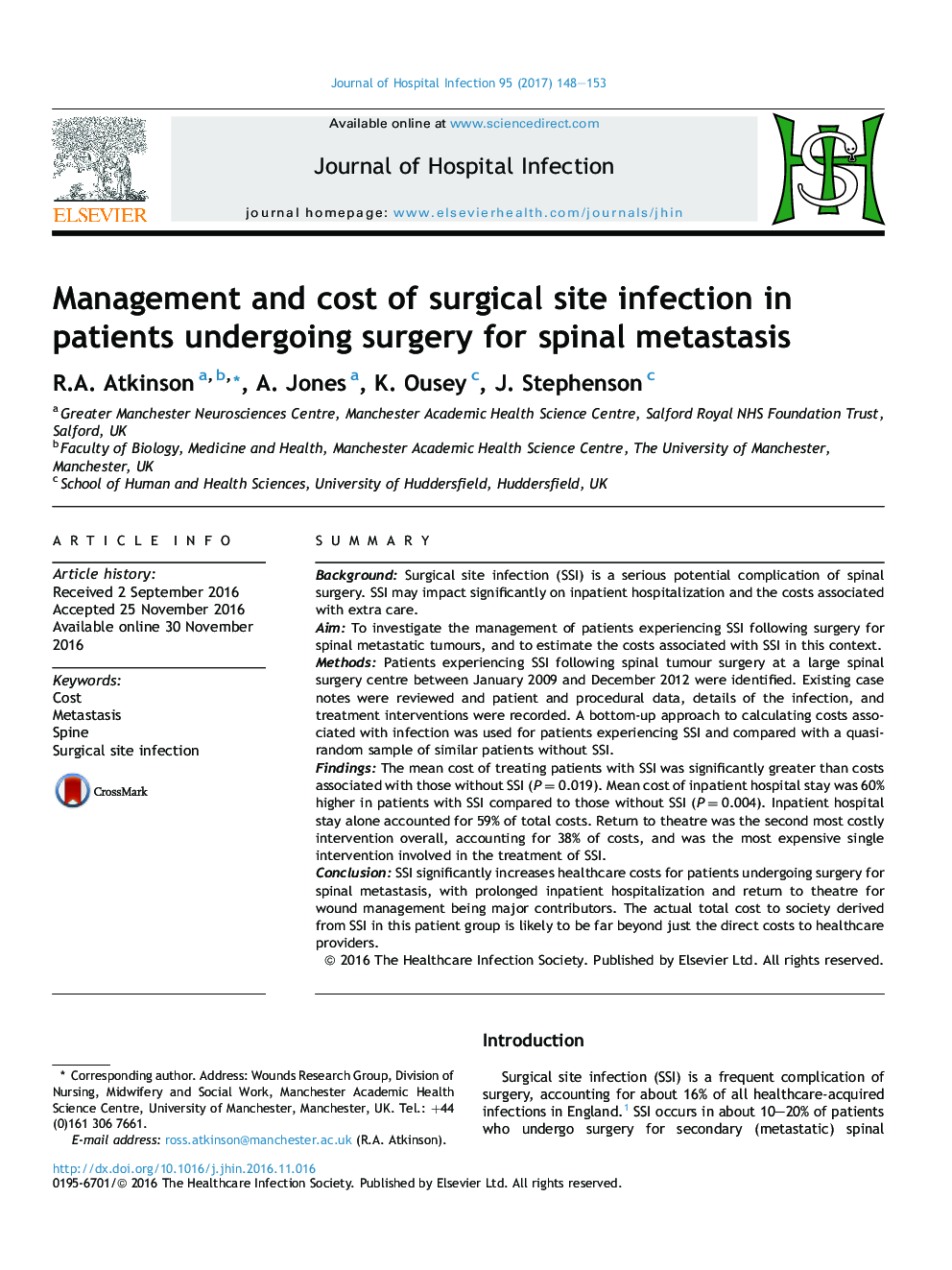| Article ID | Journal | Published Year | Pages | File Type |
|---|---|---|---|---|
| 5668389 | Journal of Hospital Infection | 2017 | 6 Pages |
SummaryBackgroundSurgical site infection (SSI) is a serious potential complication of spinal surgery. SSI may impact significantly on inpatient hospitalization and the costs associated with extra care.AimTo investigate the management of patients experiencing SSI following surgery for spinal metastatic tumours, and to estimate the costs associated with SSI in this context.MethodsPatients experiencing SSI following spinal tumour surgery at a large spinal surgery centre between January 2009 and December 2012 were identified. Existing case notes were reviewed and patient and procedural data, details of the infection, and treatment interventions were recorded. A bottom-up approach to calculating costs associated with infection was used for patients experiencing SSI and compared with a quasi-random sample of similar patients without SSI.FindingsThe mean cost of treating patients with SSI was significantly greater than costs associated with those without SSI (PÂ =Â 0.019). Mean cost of inpatient hospital stay was 60% higher in patients with SSI compared to those without SSI (PÂ =Â 0.004). Inpatient hospital stay alone accounted for 59% of total costs. Return to theatre was the second most costly intervention overall, accounting for 38% of costs, and was the most expensive single intervention involved in the treatment of SSI.ConclusionSSI significantly increases healthcare costs for patients undergoing surgery for spinal metastasis, with prolonged inpatient hospitalization and return to theatre for wound management being major contributors. The actual total cost to society derived from SSI in this patient group is likely to be far beyond just the direct costs to healthcare providers.
